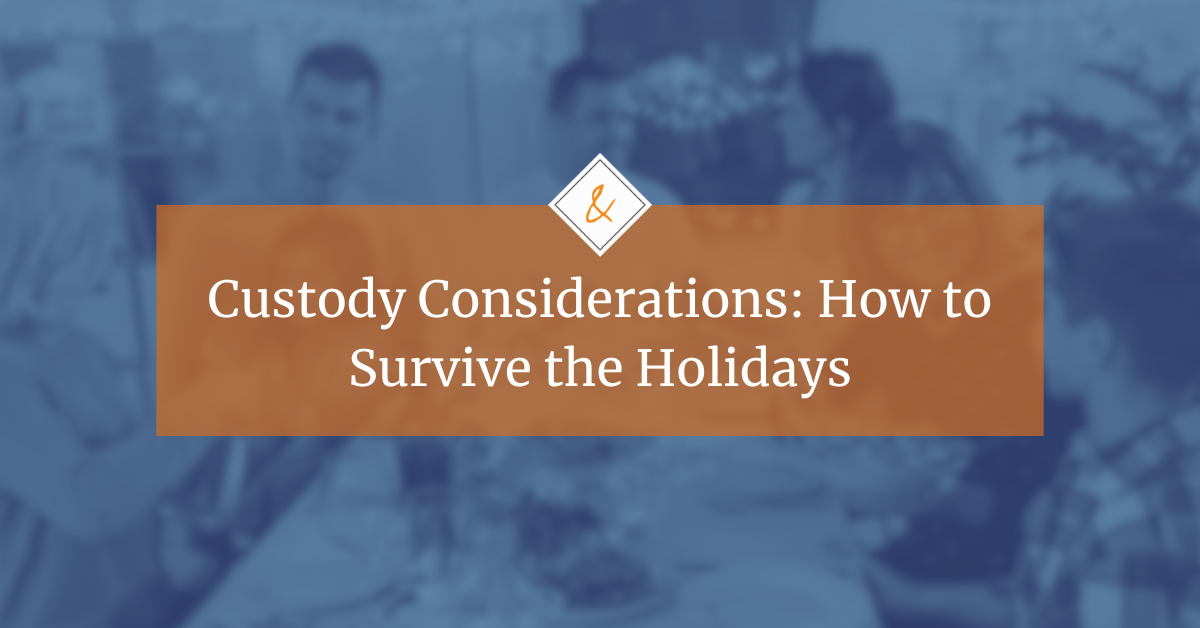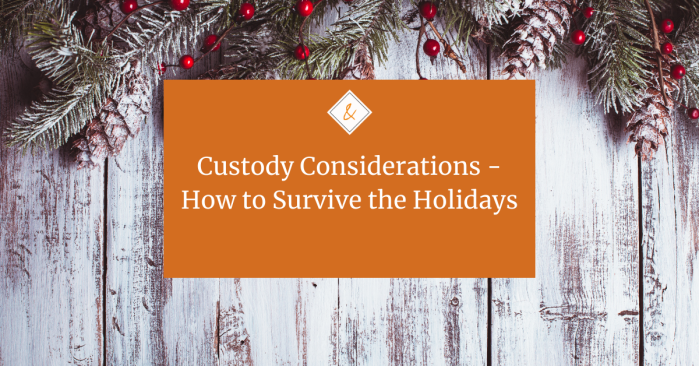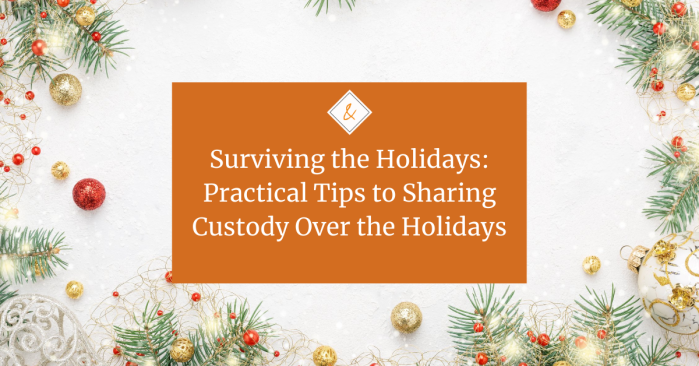Each year, fall brings a new school year, cooler weather, and the beginning of the holiday season. The holidays can be difficult even for intact families, but for parents who live in separate households, the holidays often come with added strife and tension, as parents try to navigate and schedule multiple events, celebrations and family time. So how can parents sharing custody make the holidays just a little brighter? Here are a few tips:
1. Plan Schedules in Advance: Most custody orders or agreements will include provisions as to which parent has custody for each holiday, but many orders are not specific as to the exact times the parties should exchange custody. Start thinking in advance about what the timing should look like. Consider each family’s holiday traditions and the times of each celebration. Does mom’s family start Thanksgiving dinner at lunch time? Does dad’s family always get together for Yom Kippur? Does either family attend church or synagogue for certain services each year? If parents communicate early on about these celebrations, schedules can be established to ensure that the children get to enjoy as much of each family’s celebration as possible each year. Plus, having a specific schedule in place in advance avoids conflict on the actual holiday, allowing for much more enjoyable holiday celebrations.
2. Cooperate on Gift Giving: Let’s face it, many kids in shared custody situations love that they get gifts in both houses each year. But it can take the fun out of it if both parents are buying the same gifts for the children each year. Parents should communicate in advance of gift-giving holidays to coordinate their gifting plans, in order to avoid duplicating gifts and to make sure that both parties are aware of the children’s wish lists.
3. Stop the Gossip: One of the best parts of the holidays is being able to get extended family together to celebrate. However, many family members harbor anger, resentment, or animosity toward a family member’s ex. Talk to your family members in advance of any celebrations where the children will be in attendance to ensure that the family is not talking about or gossiping about your ex. Your children will have a much happier holiday season if they do not have to spend Christmas Eve listening to Grandma bash their dad all night.
4. Prepare the Children: Make sure the kids are aware of the plans in advance, so that they know what to expect. If you celebrate Christmas, make sure young children know that Santa can find them whether they are at mom’s house or dad’s house. Having conversations with kids about what celebrations will look like, and how their celebrations will change, will make it far less stressful on the kids when the holidays roll around.
5. Be Flexible: It is not always easy to be flexible and understanding with a co-parent, but if there is ever a time to work on that flexibility, it is the holidays. Kids are going to be distracted by gifts, family, tons of food, and lots of celebration. It’s likely that they will fall behind schedule, or forget their dress pants, or eat too much at mom’s Thanksgiving to dig into dad’s turkey. Church or synagogue services may run late. Even if you follow tip #1 and plan down to the minute, those plans will likely go awry. Have patience and be flexible. Remember that this is a time for joy and celebration, not arguing and yelling about pick up times.
6. Let the Holiday Spirit(s) Flow: At the end of the day, the holidays are meant to be a magical, happy and wonderful season, especially for children. Sit back, pour yourself some egg nog (but not too much!), and take in the magic of the season through your children’s smiles. The holidays only come once a year, and the last thing parents want to do is waste those holidays angry and fighting. Let yourself be a kid again and just celebrate with your children. As the old saying goes, “eat, drink and be merry!”


